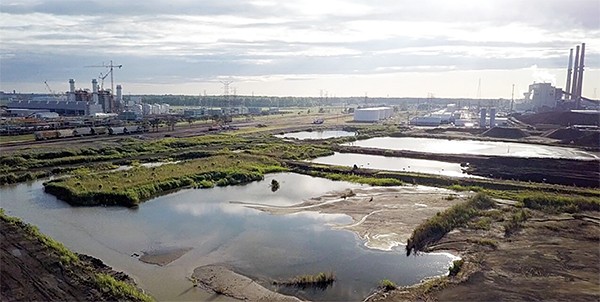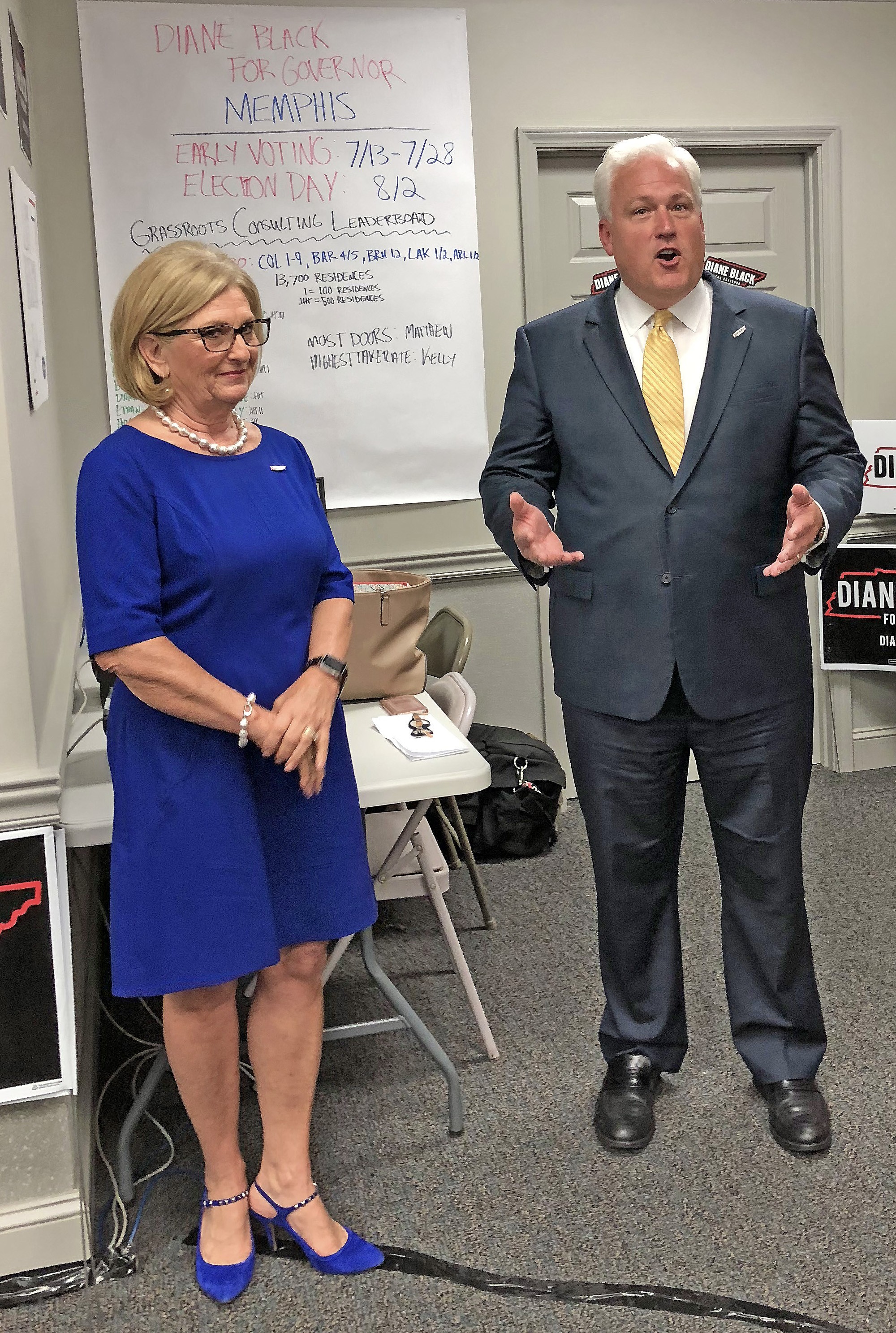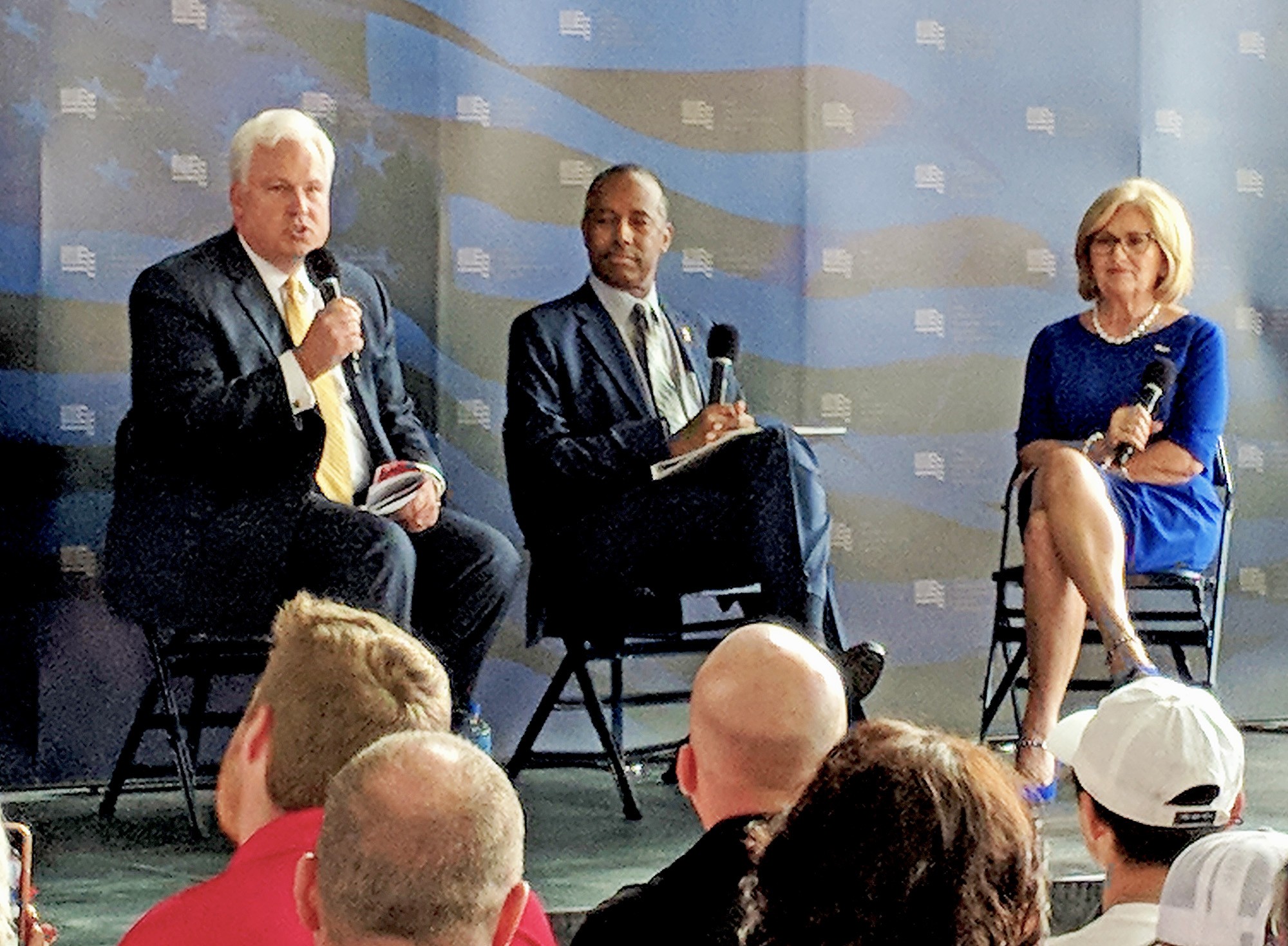Have you heard about that crazy Green New Deal? Yeah, the socialists are gonna ban hamburgers and air travel, and we’ll all be forced to use wind power for our homes! How nuts is that? When the wind stops blowing, you won’t even be able to watch television. Har har. How dumb do these liberal idiots think we are? Global warming? Har. We could use some of that right about now. It’s colder’n hell out there.
Just wanted to get that out of the way. Sorry. The lunacy passing for policy debate these days has reached depths of stupidity unimaginable just a few years ago. And President Trump’s unhinged two-hour dark-comedy routine at CPAC last Saturday just amplified it to the next level. It’s difficult to have an intelligent discussion about the environment — or anything, really — when one side of the “debate” has decided the best way forward is uninformed, knuckle-dragging ridicule.

Coal ash ponds near TVA’s Allen Fossil power plant
But the environment isn’t a laughing matter. The Green New Deal probably over-reaches, but it’s a starting point for policy discussion, not an edict to be enforced by socialist overlords. It doesn’t ban hamburgers or air travel, no matter what the president says. And wind turbines are used all over the country, generating electricity that will last throughout even the longest Netflix binge. Oh, and solar power works, too, even when it’s cloudy, or dark, like at night.
The environment and this country’s energy policy deserve serious attention and a real back-and-forth over the best ways to move — however gradually — from a mostly fossil fuel-based economy to one that will sustain the nation and the planet in the coming decades. But, as with almost every issue these days, foreign or domestic, political maneuvering and ignorant posturing seems to have subsumed the possibility of any substantive interchange of ideas.
If you need evidence that the environment needs attention, you have only to look to the TVA Allen Fossil power plant just south of Downtown, where we’ve got our own “green” issues to deal with. Thanks to some good reporting by Micaela Watts in The Commercial Appeal this week, we learned that the Memphis Sand Aquifer — the source of Memphis’ lauded drinking water — is in some peril. It is sitting beneath a coal ash landfill that contains ponds contaminated with 350 times the level of arsenic considered safe.
Though TVA closed its coal plant in 2018, replacing it with a more environmentally friendly gas-fired plant, tons of poisonous residue from decades of coal-burning remain at the site, separated from our aquifer by a thin layer of clay. But here’s the bad news: TVA reported this week that there is no clay barrier near the coal ash pond.
This would be a good time to point out the debt of gratitude all the residents of Memphis owe to a group of citizen activists who formed the group Protect Our Aquifer in 2016. They, along with the local chapter of the Sierra Club, have been relentless in their battle to keep TVA from doing what big corporations like to do: Find the cheapest way to do things, no matter the environmental consequences.
All those blue yard signs around town showed that people cared and were involved. The payoff was a big one. First, TVA was persuaded to back off its plans to drill new wells into the aquifer — near the site of the coal ash dump — in order to tap our water to cool its new gas-fired plant. The group was then influential in getting the county commission to re-examine and strengthen its permitting process for digging wells in the county.
That’s often what happens when a real debate is enjoined, when citizens stand up and make noise, and when issues get addressed and discussed in an adult, rational way by governmental bodies. Washington could learn something from what occurred here in Memphis.
Meanwhile, the somewhat good news is that TVA is assuring the public that it is quickly moving to address the problem and bring the coal ash site into alignment with federal guidelines — presuming the Trump administration won’t further weaken those guidelines in coming months in order to appease one of its corporate overlords.
We can only hope they’ll be distracted by trying to save our hamburgers.
 JB
JB 